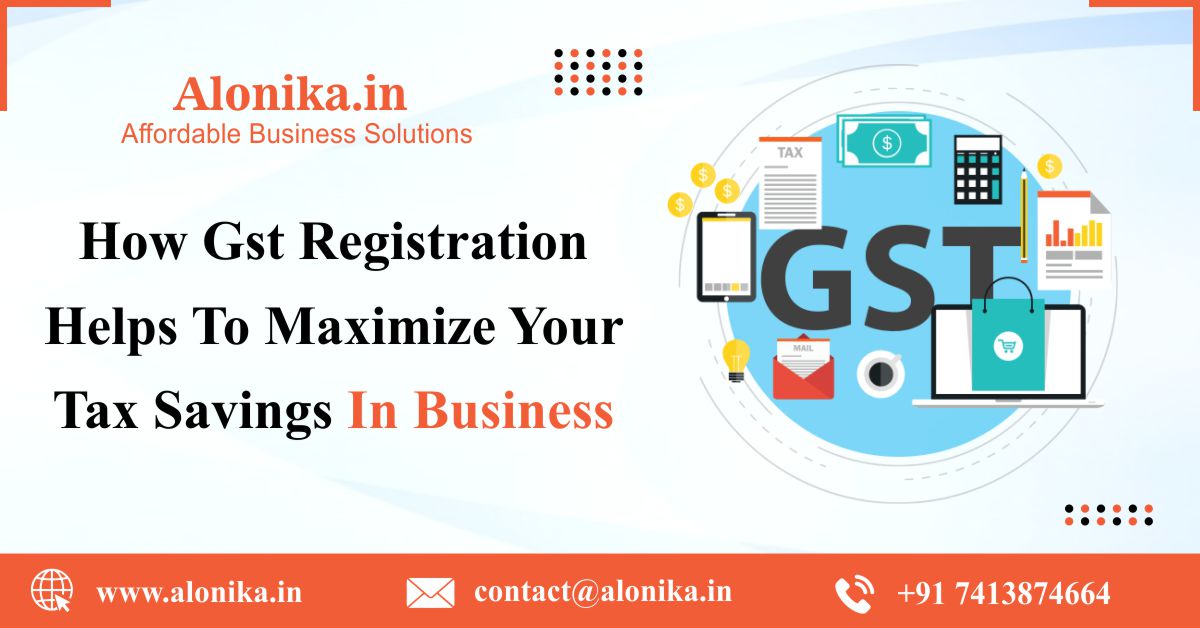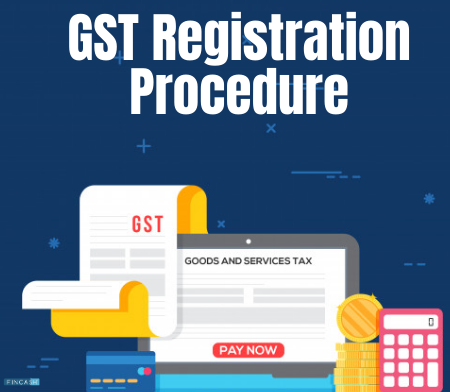How to Browse Singapore GST Registration for Your Business
How to Browse Singapore GST Registration for Your Business
Blog Article
Navigating the Intricacies of GST Registration: Expert Tips and Ideal Practices for Easier Conformity
Browsing the complex landscape of Goods and Provider Tax Obligation (GST) enrollment requires a keen understanding of the evolving regulatory framework and meticulous focus to detail. As services aim to guarantee conformity and stay clear of challenges, specialist support and best practices can act as vital compass points in this facility surface. From deciphering enrollment demands to harnessing technical tools for streamlined processes, the trip in the direction of smoother GST compliance is nuanced and multifaceted. Keep tuned to reveal essential approaches and insights that can help companies guide with the complexities of GST registration with finesse and confidence.
Comprehending GST Registration Requirements

In enhancement to turnover thresholds, services participating in interstate sales or supplying taxed solutions might likewise be called for to register for GST, even if their turnover is below the suggested restriction (Singapore GST Registration). Understanding these thresholds and requirements is important to prevent charges and ensure smooth procedures within the legal structure
Furthermore, companies must gather and prepare the necessary documentation, such as proof of identification, address, business consolidation, and savings account information, prior to starting the GST enrollment process. Failing to give accurate info or meet the registration due dates can lead to fines or other legal effects. Organizations should remain educated concerning the specific GST enrollment demands suitable to their operations to preserve conformity and prevent potential problems.
Organizing Necessary Documents
Services getting started on the GST enrollment process should meticulously compile and arrange the vital documentation required for submission. The key documents typically needed for GST registration include evidence of business enrollment or identity, address and unification proofs of the business owners or partners, financial institution account details, evidence of principal location of service, and consent types. Making sure that these papers are readily offered and arranged can enhance the enrollment process and stop denials or hold-ups.
To efficiently arrange essential documentation, services ought to develop a central system for saving and classifying the called for documentation (Singapore GST Registration). Making use of electronic storage services can help preserve easy access and make sure that documents are safely kept. Additionally, developing a checklist of all essential documents can serve as a useful device to track what has been gathered and what is still required for submission

Leveraging Innovation for Effectiveness
Enhancing functional effectiveness through technical assimilation is vital for modern businesses navigating the intricacies of GST registration. Leveraging modern technology can enhance processes, decrease errors, and make certain timely conformity with GST laws. Among the key methods modern technology can help in GST enrollment is with using automated software program remedies. These devices can help businesses track sales, produce billings, determine tax obligations, and send returns accurately. By automating these jobs, services can lessen manual errors and save time that would otherwise be invested on repetitive administrative job.
In addition, modern technology can facilitate seamless communication with tax authorities. On the internet portals and interaction tools make it possible for services to send records, deal with inquiries, and obtain updates in a much more effective way. This not only speeds up the enrollment procedure yet also aids in preserving transparent and dependable communication with the pertinent authorities.
Moreover, cloud-based storage space services provide a secure platform for services to shop and accessibility their economic data, ensuring compliance with GST record-keeping requirements. By systematizing information storage and automating procedures, companies can improve their overall effectiveness and precision in GST registration procedures.
Proactive Conformity Monitoring

To make certain effective proactive compliance tracking, businesses need to develop durable interior controls, conduct regular audits, and utilize automation devices for real-time tracking of GST transactions. Regular training sessions for staff members on GST conformity demands can likewise help in producing a culture of conformity within the company. Additionally, engaging with tax obligation professionals or specialists can provide important internet understandings and support on navigating complex GST regulations.
Engaging With Specialist Professionals
Engaging seasoned tax obligation specialists can dramatically boost a firm's understanding and compliance with detailed GST policies. Expert professionals bring a wide range of knowledge and experience to the table, aiding businesses browse the complexities of GST registration with convenience. By leveraging their knowledge, business can ensure exact filings, decrease the threat of mistakes, and remain up-to-date with the latest regulative modifications.
When involving with professional specialists, it is necessary to select specialists with a solid track record in GST conformity (Singapore GST Registration). Try to find experts who have a deep understanding of the appropriate laws and guidelines, as well as experience working with organizations in your sector. Efficient interaction is type in this partnership, so make sure to clearly specify your assumptions and establish regular touchpoints to talk about development and attend to any type of problems
In addition, specialist professionals can give important insights and advice on maximizing your tax obligation view strategy, determining possible cost-saving opportunities, and streamlining your conformity procedures. Generally, buying specialist working as a consultant solutions can go a long way in ensuring smoother GST conformity and avoiding expensive errors.
Final Thought
In verdict, browsing the complexities of GST enrollment calls for a thorough understanding of the demands, company of vital paperwork, leveraging technology for effectiveness, proactive conformity monitoring, and engagement with expert professionals. By following these finest methods, organizations can make sure smoother compliance with GST regulations and avoid prospective fines or penalties. It is crucial to remain educated, positive, and diligent in taking care of GST enrollment to preserve compliance and support financial honesty.
To guarantee conformity with tax policies, organizations should extensively recognize the elaborate requirements for GST enrollment. Goods and Services Tax Obligation (GST) is a value-added tax imposed on a lot of products and solutions in a nation, making it crucial for companies to register for GST to stay clear of lawful effects.In addition, organizations have to collect and prepare the essential paperwork, such as proof of identity, navigate to this website address, business consolidation, and bank account details, before starting the GST registration procedure. Companies should remain informed regarding the particular GST registration needs appropriate to their procedures to maintain compliance and avoid potential concerns.
The crucial documents commonly needed for GST registration include evidence of service registration or identity, address and incorporation proofs of the organization owners or partners, financial institution account details, proof of primary location of service, and consent types.
Report this page